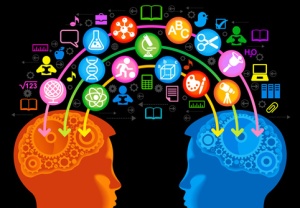Reading: Open Sky by Paul Virilio, Part 3
Alright so I’m don with Virilio and I hate him.
…….maybe not hate, but that reading was tough.
Let the discussion begin.
One of the few points I actually agreed with was that globalization leads to stagnation in cultural development. This is true.
Virilio basically thinks that the media is able to ensue mind control on society based on the images that we see. Which in part is true. For those people who see images but aren’t able to think for themselves, it could be an issue. But for those educated enough to understand that the media is usually only one side of a story, there shouldn’t be that huge of a problem. Virilio thinks the media mutates our perception. But lets be real for a minute. What exactly is perception? It’s what you see. And which is better? Seeing a lot of one thing, or a bunch of nothing? Because I understand where Virilio is coming from with this whole “perception mutation” thing, but he has to realize that without technology we would only know the things that went on in our areas. It’s a blessing to be able to know of things that we can’t actually relate to. It’s a part of our global culture. And yes I understand that global culture deals mostly with world powers, but I’m pretty sure that as peripheral nations gain technologies, there will be much more press on them and more opportunities to learn about their cultures.
For example, did you know that there are other versions of Hollywood in other parts of the world? Nollywood (Nigeria) and Bollywood (India) serve as a voice for their nations. While Hollywood films are more prominent globally, in their regions Nollywood and Bollywood create more revenue because people are more interested in films that directly relate to their cultures.
Virilio also believes we as a society will lose the ability to think for ourselves. I also understand that. Because it’s a lot easier to let technology do the thinking. But I still feel that while technology leaps over some problem, it leaves us with others. Like, how can we make our ideas stand out with all of the other amazing ideas out there? How can we ensure our privacy on networks? Life isn’t just perfect and happy go lucky now that we have internet. And we as a society must be even more creative in absolutely new and unforseen ways in order to stay above our competition (who are other humans, with technology. But humans nonetheless).
He also thinks that technology does away with communities because some people think that living behind a computer screen is actually okay. And that’s true, some people communicate solely from behind a technological screen of some sort. However, those people will not be the ones who influence the paths that society will take because at the end of the day, human interaction beats technology any day. No one cares about you when you don’t interact with society. And the number of people who actually have lives outside of technology is far greater than those who don’t.
Discussion Questions:
1. So is technology good, or bad? Are we adapting to it, or is it adapting to us?
2. Should we really be that concerned with the problems Virilio raises?



